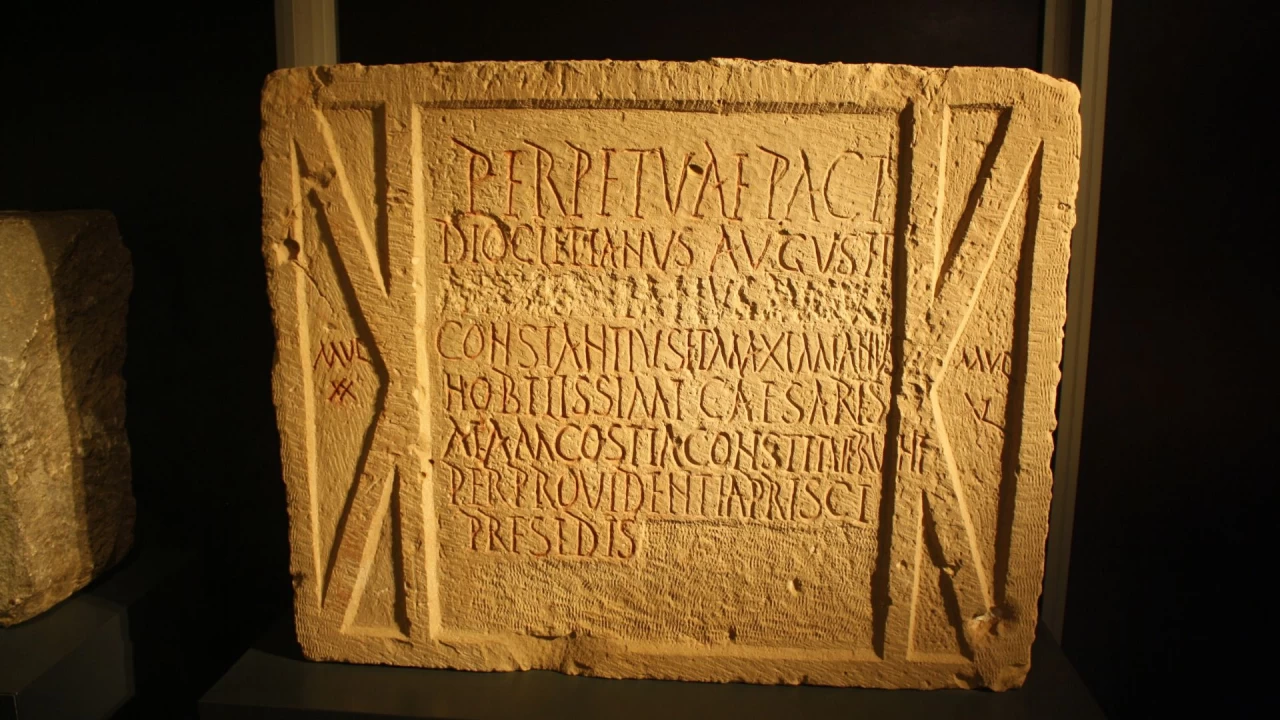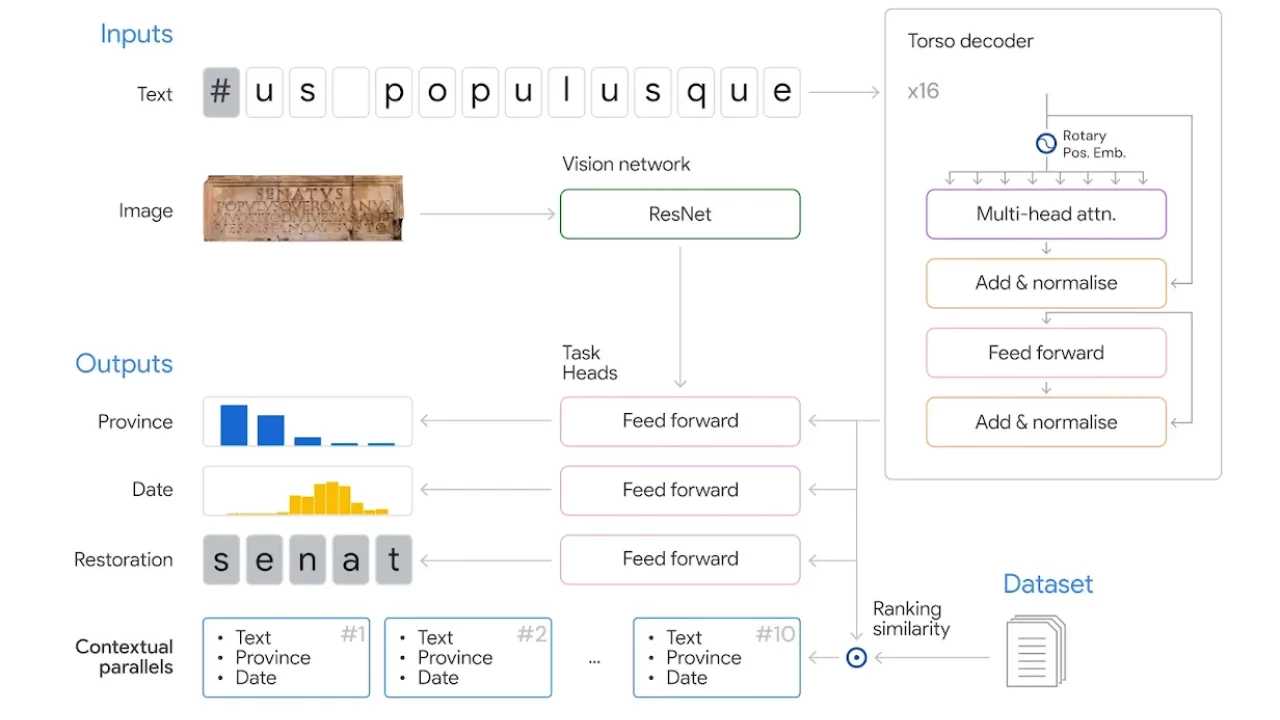
Google’s AI research lab, DeepMind, has introduced a new AI model to help historians better understand ancient texts. Named Aeneas, it’s the first model for contextualizing ancient inscriptions, and DeepMind has published a paper describing it in detail.
The research lab explained in a blog post that Aeneas enables historians to gain new insights into our past by helping them interpret, attribute, and restore fragmentary ancient texts. The open-source AI model is trained for Latin; however, it can also be trained for other ancient languages, scripts, and media.
It can search for texts that share similarities in wording, syntax, standardized formulas across thousands of Latin inscriptions, process multimodal input, and restore gaps in text. While historians rely on their expertise and specialized resources to identify parallels, the AI model can speed up the process and lift some time-consuming work off their shoulders.
Aeneas is named after the mythical hero from Greek and Roman mythology. It builds upon the previous AI model, Ithaca, which was developed to aid in understanding Greek inscriptions.
“Aeneas goes a step further, helping historians interpret and contextualize a text, give meaning to isolated fragments, draw richer conclusions and piece together a better understanding of ancient history,” DeepMind said in a blog post.

The model converts each text into a historical fingerprint, containing information about what the text says, its language, its origin, and its relationship to other inscriptions. It identifies deep connections that can help historians situate inscriptions within their broader historical context. Its massive dataset of over 176,000 Latin inscriptions combines decades of work by historians.
DeepMind notes that Aeneas delivers better performance and groups inscriptions by date of writing more accurately than other general-purpose models trained on Latin. An interactive version of Aeneas is freely available for researchers, students, educators, and museum professionals to try out. Meanwhile, its source code and dataset are available on DeepMind’s GitHub repo.
Aeneas adds to Google’s growing list of tools for cultural preservation. Earlier this month, the search giant revamped its experimental AI tool, Woolaroo, which allows users to try and learn endangered indigenous languages.
